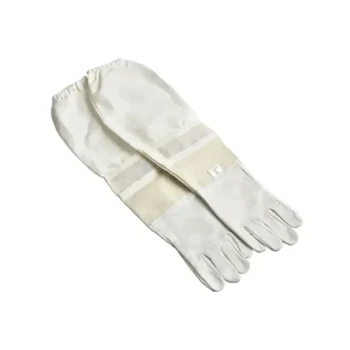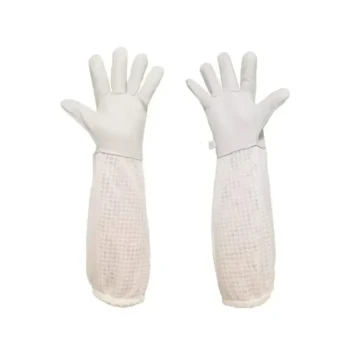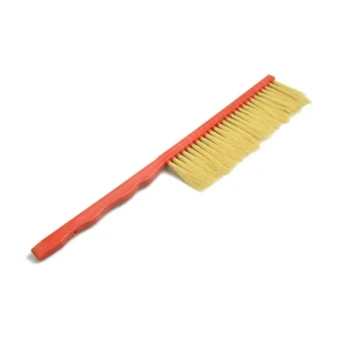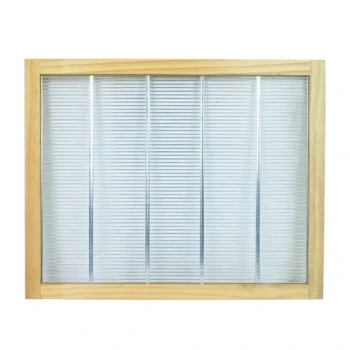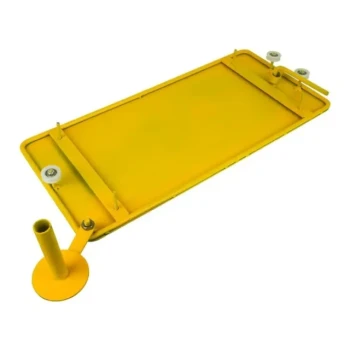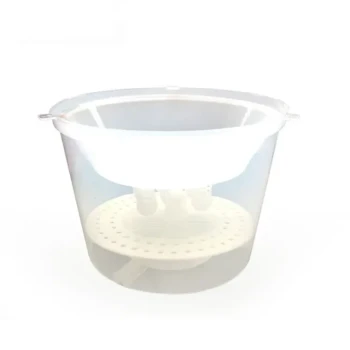The short answer is that some highly experienced beekeepers choose not to wear protective gear because they have developed a deep understanding of bee behavior and value the increased dexterity and sensory feedback that comes from working without gloves. This practice allows for more delicate hive manipulations but is based on years of experience and is strongly discouraged for anyone but seasoned experts.
The decision to wear protective gear is a fundamental trade-off between physical safety and sensory connection with the hive. For beginners, safety is the absolute priority, while for some experts, direct feedback becomes a tool for better beekeeping.
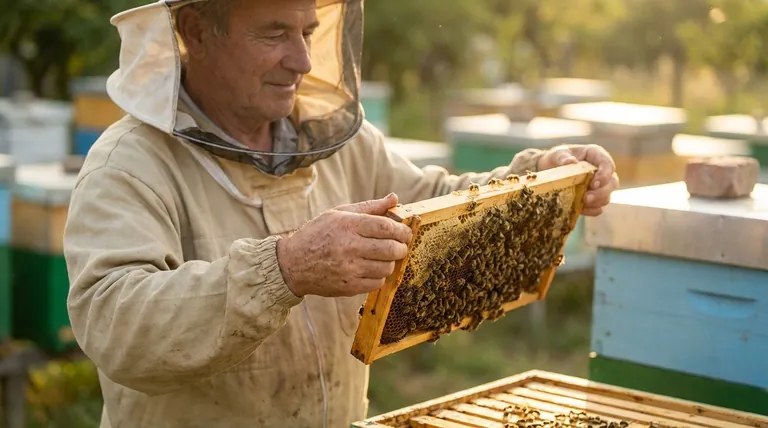
Why Experience Changes the Equation
An experienced beekeeper's choice to work with less protection is not about bravado; it's a calculated decision based on a deep, almost intuitive, connection with their colonies.
Enhanced Sensory Feedback
Working without thick gloves allows a beekeeper to feel the hive. They can handle frames more gently and are more aware of the bees' movements on their hands, leading to fewer accidental squishes that can trigger defensive responses.
Increased Dexterity and Precision
Beekeeping often requires delicate tasks, like marking a queen or handling a single frame of brood. Gloves are inherently clumsy and can make these precise movements difficult. Bare hands provide the dexterity needed for more nuanced work.
The Ability to "Read" the Hive
Veteran beekeepers can assess a hive's temperament almost instantly. They understand the subtle cues—the sound, the smell, the flight patterns—that signal whether a colony is calm or agitated, allowing them to decide if it's safe to proceed with minimal gear.
The Non-Negotiable Case for Gear
While experts may occasionally forgo a full suit, protective equipment remains an essential tool in beekeeping, especially for those who are still learning.
Confidence for Beginners
For new beekeepers, a full suit is critical. It provides a barrier against stings, which allows you to focus on learning hive inspection techniques without the fear of being hurt. This confidence is essential for developing good habits.
Protection Against Unpredictability
Even the most docile hive can have a bad day. A sudden change in weather, a clumsy movement, or an external threat can instantly change their temperament. Your bee suit is insurance against the unexpected.
The Veil is Most Critical
Even beekeepers who work without gloves or a full suit will almost always wear a veil. Stings to the face, especially near the eyes, nose, and mouth, are uniquely painful and dangerous. This piece of gear is considered indispensable.
Understanding the Trade-offs
Choosing your gear means balancing protection, comfort, and maneuverability. There is no single correct answer, only what is right for your experience level and goals.
Full Suit vs. Jacket
A full bee suit offers maximum, head-to-toe protection, providing the greatest peace of mind. However, it can be hot and cumbersome. A bee jacket is a common compromise, protecting the upper body and head while offering more mobility.
Gloves: Protection vs. Feel
Thick leather gloves offer the best protection from stings but severely limit dexterity. Lighter gloves, such as nitrile gloves, provide a barrier while allowing for more feel. Working barehanded offers the most feel but zero protection.
Making the Right Choice for Your Goal
Your approach to protective gear should evolve with your experience and confidence.
- If your primary focus is learning and building confidence: Start with a full suit or a jacket-and-veil combination with gloves. Prioritize your safety above all else.
- If your primary focus is gaining efficiency and a better feel: As you gain experience, you might transition to just a jacket and veil, or try using thinner nitrile gloves to improve your dexterity.
- If you are an expert assessing a known, calm hive: The choice to work without gloves is a personal risk assessment, but always have a veil readily available.
Ultimately, protective gear is a professional tool designed to make you a safer, more confident, and more effective beekeeper.
Summary Table:
| Beekeeper Level | Recommended Gear | Key Benefits |
|---|---|---|
| Beginner / Novice | Full suit, veil, gloves | Maximum protection, builds confidence, prevents stings |
| Intermediate | Jacket & veil, nitrile gloves | Balanced protection with improved dexterity and sensory feedback |
| Expert / Veteran | Veil (essential), optional gloves | Maximum dexterity, direct hive connection, precise manipulations |
Ready to equip your apiary with the right protective gear? Whether you're a commercial beekeeper managing hundreds of hives or a distributor supplying the beekeeping community, HONESTBEE provides durable, professional-grade suits, jackets, veils, and gloves designed for safety and efficiency. Contact our wholesale team today to discuss bulk pricing and equipment tailored to your specific operational needs.
Visual Guide
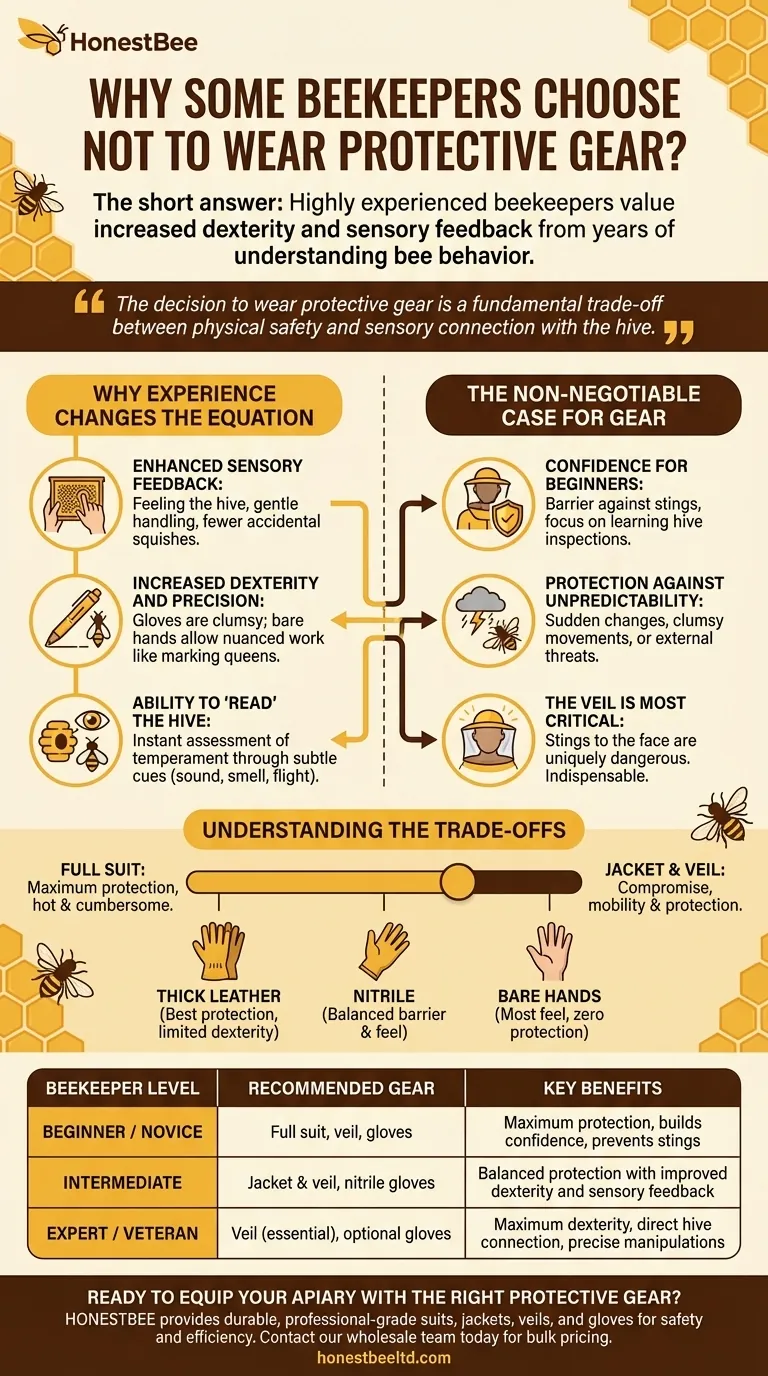
Related Products
- Goatskin Leather Beekeeper Gloves with Vent Long Sleeve for Beekeeping Honey Bee Sting Proof Protection
- Premium Ventilated Goatskin Beekeeping Gloves with Full 3-Layer Mesh Sleeve
- Goat Skin Leather Bee Sting Proof Beekeeping Gloves with Canvas Sleeve
- Professional Galvanized Hive Strap with Secure Locking Buckle for Beekeeping
- High Performance Plastic Queen Excluder for Beekeeping and Apiary Management
People Also Ask
- How should leather beekeeping gloves be dried and conditioned? Expert Tips for Lasting Protection
- Why is it important to have gloves available even if not always worn? Essential Risk Management for Beekeepers
- How can beekeeping gloves increase comfort during use? Optimize Grip & Breathability for All-Day Hive Work
- What glove materials are bees unable to sting through? Expert Guide to Puncture-Resistant Beekeeping Gloves
- What is the procedure for washing and rinsing leather beekeeping gloves? Expert Tips for Longevity
